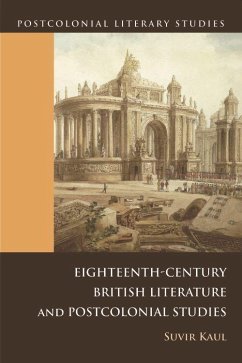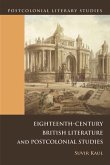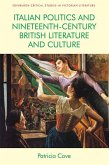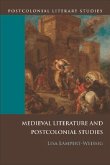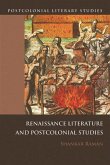'This book convincingly challenges both the extremely short historical memory of most postcolonial work and the all-too-insularly English world still conjured by period specialists. Hogarthian whores and Grub Street hacks, coffee houses and fashionable pastimes, and the burgeoning of print culture all stand revealed as intimately bound to portents of plantation insurgency, agitation for abolition, and the vast fortunes produced by the labouring bodies of the poor, the colonized, and the enslaved. Eighteenth-century studies has never appeared in a more engaged and fascinating light.' Professor Donna Landry, University of Kent In this volume Suvir Kaul addresses the relations between literary culture, English commercial and colonial expansion, and the making of 'Great Britain' in the late seventeenth and eighteenth centuries. He argues that literary writing played a crucial role in generating the vocabulary of British nationalism, both in inter-national terms and in attempts to realign political and cultural relations between England, Scotland, and Ireland. The formal innovations and practices characteristic of eighteenth-century English literature were often responses to the worlds brought into view by travel writers, merchants, and colonists. Writers (even those suspicious of mercantile and colonial expansion) worked with a growing sense of a 'national literature' whose achievements would provide the cultural capital adequate to global imperial power, and would distinguish Great Britain for its twin success in 'arms and arts'. The book ranges from Davenant's theatre to Smollet's Roderick Random to Phillis Wheatley's poetry to trace the impact of empire on literary creativity. Key Features *An introduction to the impact of mercantilism and empire on the crafting of eighteenth-century British literature *Encourages students to examine the key formal innovations that define eighteenth-century British literary history as they were produced by writers who redefined their sense of home, nation and the world
Eighteenth-Century British Literature and Postcolonial Studies Suvir Kaul 'Introducing for the first time the preoccupations of Postcolonial studies in dialogue with a revisionist literary history of eighteenth-century Britain, this book convincingly challenges both the extremely short historical memory of most postcolonial work and the all-too-insularly English world still conjured by period specialists. Hogarthian whores and Grub Street hacks, coffee houses and fashionable pastimes, and the burgeoning of print culture all stand revealed as intimately bound to portents of plantation insurgency, agitation for abolition, and the vast fortunes produced by the labouring bodies of the poor, the colonized, and the enslaved. Eighteenth-century studies has never appeared in a more engaged and fascinating light.' - Donna Landry, Professor of English and American Literature, University of Kent This book argues that eighteenth-century British writing must be analysed in relation to Britain's mercantile and territorial expansion. Great Britain was forged in battle against European competitors and resistant native populations overseas, and literary writing, as well as travelogues, newspapers, and periodicals confirmed that British readers lived in a world being reshaped by the experience of overseas travel, trade, and settlement. Plays, novels and poems are analysed in order to demonstrate how innovations in literary form and genre were driven by the imaginative need to manage the challenging experiences of the Empire. The book also argues that postcolonial modes of cultural analysis are best suited to produce literary histories adequate to the world-creating ambition of British writers in this period. Suvir Kaul is A. M. Rosenthal Professor of English at the University of Pennsylvania.
Eighteenth-Century British Literature and Postcolonial Studies Suvir Kaul 'Introducing for the first time the preoccupations of Postcolonial studies in dialogue with a revisionist literary history of eighteenth-century Britain, this book convincingly challenges both the extremely short historical memory of most postcolonial work and the all-too-insularly English world still conjured by period specialists. Hogarthian whores and Grub Street hacks, coffee houses and fashionable pastimes, and the burgeoning of print culture all stand revealed as intimately bound to portents of plantation insurgency, agitation for abolition, and the vast fortunes produced by the labouring bodies of the poor, the colonized, and the enslaved. Eighteenth-century studies has never appeared in a more engaged and fascinating light.' - Donna Landry, Professor of English and American Literature, University of Kent This book argues that eighteenth-century British writing must be analysed in relation to Britain's mercantile and territorial expansion. Great Britain was forged in battle against European competitors and resistant native populations overseas, and literary writing, as well as travelogues, newspapers, and periodicals confirmed that British readers lived in a world being reshaped by the experience of overseas travel, trade, and settlement. Plays, novels and poems are analysed in order to demonstrate how innovations in literary form and genre were driven by the imaginative need to manage the challenging experiences of the Empire. The book also argues that postcolonial modes of cultural analysis are best suited to produce literary histories adequate to the world-creating ambition of British writers in this period. Suvir Kaul is A. M. Rosenthal Professor of English at the University of Pennsylvania.

